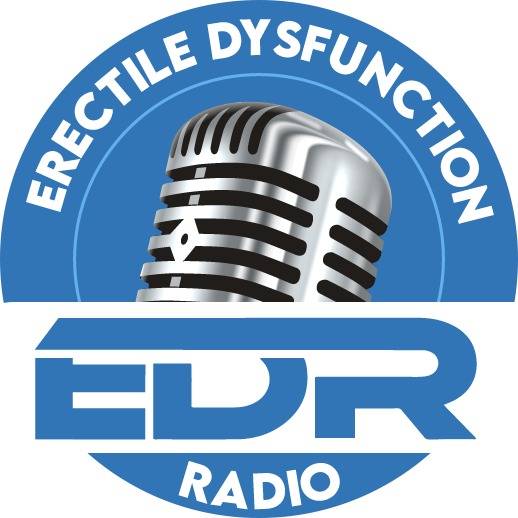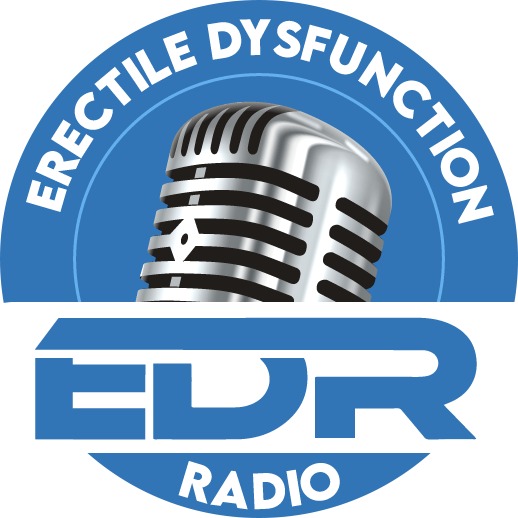
Listen to Masturbation and Erectile Dysfunction through the podcast player above.
Erectile Dysfunction Radio Podcast
Masturbation is covered on today’s episode as we explore why some men tend to associate masturbation with erectile dysfunction.
The Erectile Dysfunction Radio Podcast is dedicated to educating and empowering men to address erectile dysfunction, improve confidence, and enhance the satisfaction in their relationships. This podcast is hosted by certified sex therapist, Mark Goldberg, LCMFT, CST.
Transcript of Episode 31 – Masturbation and Erectile Dysfunction

Mark: I’m going to keep this question focused on male masturbation. Like most data on masturbation it is inconclusive in the sense that there are a number of studies and there are a number of answers or conclusions that these studies have reached. Let me just say a couple of things about the studies first and foremost, and then we can get into the numbers.
The studies are really driven by self-reporting, there’s no way to test, as far as I know, if somebody masturbates or not. The results of a study really depend on people being honest in their self-reporting, so some of the numbers are lower, some of the numbers are higher; it’s important to take a close look at how the study was structured, how the questions were asked.
The ranges all are in the 70% up until, I believe, 98%. It’s common. If the low end of self-reporting is 70% and there are many people who will postulate that there is under-reporting in these studies, you can imagine that masturbation in the male population is quite common.
Casey: Mark, you lost me on postulate. What does that mean?
Mark: Postulate, meaning, one can reach a logical understanding that masturbation is quite common in the male population.
Casey: Thanks for clarifying that. Why does it seem like so many men tend to associate masturbation with ED?
Mark: There is little evidence to support the notion that masturbation contributes to erection problems in and of itself. That is correct. Why do men tend to associate masturbation with erectile dysfunction? I would ask the question in reverse, and I think that there seems to be an association that a lot of men have that erectile dysfunction is caused by masturbation.
And the question is, how did we get there? How do we come to this conclusion, or this understanding when there really is a little evidence for it?
There certainly are a number of ways to look at how we got to that association. One of the things that I would suggest that I think is worthwhile thinking about is certainly in younger men who tend to be healthy, they’re going to look for what could possibly have caused them to experience erectile dysfunction.
Traditionally men and mental health has been a challenging and stigmatized areal. A healthy man wouldn’t necessarily think that there’s something going on inside of his head, so the next logical conclusion is that, well, he must have done something to cause this, so that means either he did something physically to his body, he caused too much stimulation, for some men, they reach conclusions that it must be some sort of punishment for masturbation.
But what I think tends to happen is men believe that they have caused this and they’re looking for some sort of answer. The most obvious place to look is something that they did, which would be masturbation.

Casey: There is a history of people or historical figures or even prominent, important, famous doctors at the time, that blamed masturbation for many physical and mental ailments. Can you just give us a brief run-down on that history and why it matters to this day?
Mark: It would be really hard to give a brief rundown, masturbation has been documented for thousands of years, and different cultures throughout society have related to masturbation in very different ways.
It would take a podcast series to properly run through the history. What I can say is that some cultures have embraced masturbation and have elevated masturbation. They have seen it as a primary source of pleasure and something to be celebrated.
Other societies and cultures, and certainly in the Western society that most of our listeners have found themselves in current times is built on a culture that did not look at masturbation through a positive frame or a positive lens, and that has religious components to it, but it also has cultural components to it. Certainly in the United States, in its earlier years, masturbation was frowned upon, if not… outright rebuked and railed against in many of the institutions and many prominent figures speaking out against it.
Casey: How does that history impact today’s thinking of masturbation?
Mark: Whenever you’re talking about societal messaging and collective thinking, it’s very difficult to say how. I think what we can conclude is that there certainly is an impact. I think for many people, there is a multi-generational process of guilt that’s associated with masturbation.
A belief that they have done something wrong, that there’s some sort of evil in masturbation. I believe that it’s something that trickles down over the centuries, over the generations, and even as society shifts, it becomes very, very difficult to genuinely shake some of these thoughts and some of these beliefs.
Casey: Yeah, that makes a lot of sense. Things are passed down from generation to generation, and it takes a while in some circumstances for that chain to kind of break down. Please discuss guilt, masturbation, and how it all relates back to erectile dysfunction.
Mark: Not a problem. So guilt is an emotional experience that will vary from person to person in terms of how they experience that guilt, I think when we’re talking about how guilt impacts erections, again, we go back to the brain in order to optimize the environment that you find yourself in. For erections, pleasure is a really important ingredient.
You’ve got to feel good about yourself and about being with your partner. If this is happening a partnered setting, you’ve got to be in a good head space to optimize the erection environment.
If you’re engaging in activity that on some level you believe is wrong, you believe is sinful, you believe is inappropriate, you believe that it means something about you and your character, that’s going to directly impact your ability to engage comfortably, to masturbate with pleasure and can really erode the entire erection process leading to either not gaining an erection or not being able to maintain it during the course of masturbation.
Casey: Why is it important not to mix up masturbation and pornography when it comes to erectile dysfunction? We’ve had episodes and articles on our website about pornography, it seems that the two get mixed up together a lot when it comes to erectile dysfunction.
Mark: I think the simple reason why they get mixed up is because for a large majority of people who masturbate, they view pornography, and for probably an even larger number who view pornography, they masturbate while they’re viewing it.
It’s very easy to conflate these two topics, and this really can cause men to reach all sorts of conclusions in terms of what is causing their erectile dysfunction. Masturbation can get blamed when perhaps they have a very particular type of thing that they enjoy watching and they’re just struggling to replicate that in a partnered setting.

Casey: Can you define for us excessive or frequent masturbation, what does that mean? And is that an issue that could cause erectile dysfunction for a man?
Mark: So this is a bit of a gray area. So I can’t really define excessive masturbation. I think this varies, again, from person to person in terms of what would be considered excessive.
There are no numbers that I can give you, but what I can say about it is if you are finding that you are masturbating to the point that it is interfering with other responsibilities and other activities you are planning around your masturbation, you can’t engage with other people, or you need to take a lunch break at a certain time in order to masturbate, and it really is beginning to impact your work schedule, your school schedule, the way you interact with a partner and a friend… that might be considered excessive masturbation.
Now, when we talk about excessive masturbation and having a potential link to erectile dysfunction, again, there are two components, so let’s first talk about the mental component, and then we’ll talk about the physical component.
On the mental end, if a person is that planned about their masturbation this may indicate other underlying mental health conditions that can impact erections in other ways. So if a person is engaging in excessive masturbation, this may be something they want to look at in terms of why this is happening to the extent that it is impacting their lives.
Now, I want to be clear, if a person finds it pleasurable to masturbate a few times in a day, and it’s not physically painful, and it’s not disrupting their lives, that’s their prerogative. That’s their choice if they want to do that. I think it’s when it begins to interfere, that that opens up a more broad question in terms of what is happening inside of this person’s mental health, inside of their mind for their general well-being that could be impacting erections, so that’s on the mental side.
On the physical side, again, there is still little evidence that directly links excessive masturbation to erectile dysfunction. It may impact erectile dysfunction in terms of the type of stimulation that a person has become accustomed to, and it may be difficult to get that going in a partner setting, and that can also be a challenge without excessive masturbation, so not necessarily unique to the frequency of masturbation.
When it comes to the intensity that somebody masturbates, in rare instances, a person can experience an injury or they may have a predisposition to certain conditions that can over time impact erections. So if a man notices any changes to coloration, if a man over time is developing curvature in his penis resulting from masturbation, it’s really important to see a doctor.

Casey: I think we all as listeners had a collective shiver of queasiness when you said snap. I’m glad you qualified that by saying it was very rare because I, for one, did a little shake here in my seat as I talk to you about this stuff. It sounds like there’s a lot of gray area.
Mark: There’s a lot of gray area and I completely get the shiver, and as I say it, I shiver too, but I remind people that things happen that are rare, and we all continue to engage in life in any case, car accidents do happen, we all get in a car. I would equate it to that, and I think it’s okay to be aware of the way you are engaging with your penis during masturbation.
If you are finding yourself to be excessive or you are masturbating in a way that puts strain or puts a particular pressure on the penis that could result in that, find another way. As difficult as that might be, find another way and just be safe about it, but again, these are extremely rare instances, and if it does happen and you seek medical attention, for the most part, you can prevent any permanent damage.
Casey: Any final words on masturbation and erectile dysfunction?
Mark: Masturbation is not a health issue, it’s not anything to be concerned about Whether you engage in masturbation or you don’t, either is considered healthy and mentally healthy, it’s important to maintain a healthy relationship with pleasure. Masturbation can be a part of that.
Masturbation can also hinder pleasure, and I think men need to examine what their relationship is with pleasure, how that impacts the way they feel about themselves and what they want to do about that impact in order to be able to have long-term healthy erections.
Subscribe to our Podcast
All ED Radio Podcast episodes are available on this website, ErectionIQ.com. You can also find and subscribe to it for free on Apple Podcast/iTunes, Spotify and YouTube.
Ready to Learn More?
To start your in-depth approach to resolving ED, try our online learning course called BEYOND THE LITTLE BLUE PILL, The Thinking Man’s Guide to Understanding and Addressing ED.
Ready to talk to an ED expert? Erection IQ founder Mark Goldberg helps men resolve erectile dysfunction. He offers individual, one-on-one services to men throughout the world through a secure, telehealth platform. It’s 100% confidential. You can visit the Center for Intimacy, Connection and Change website to
Schedule A Consultationwith Mark.

